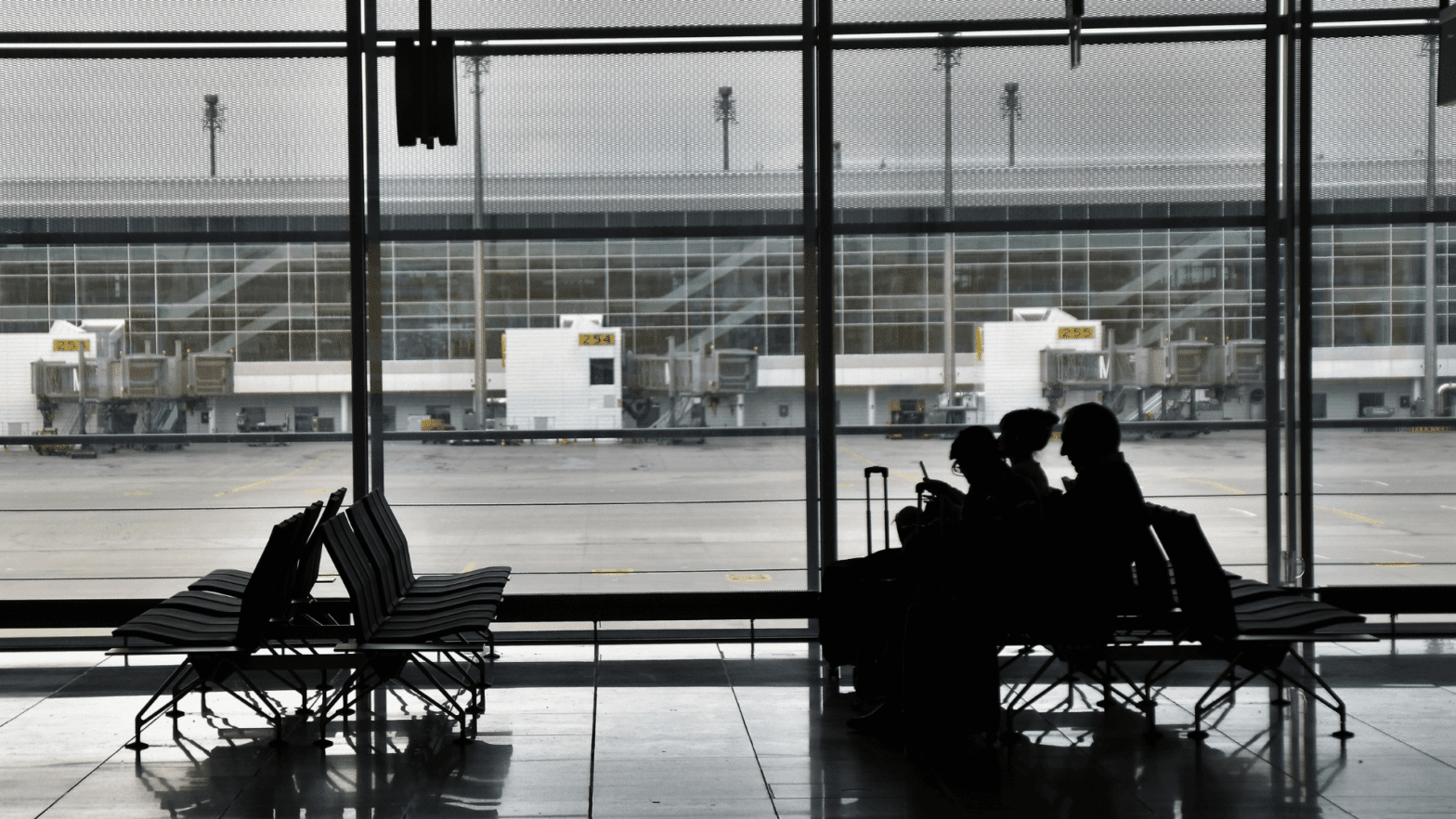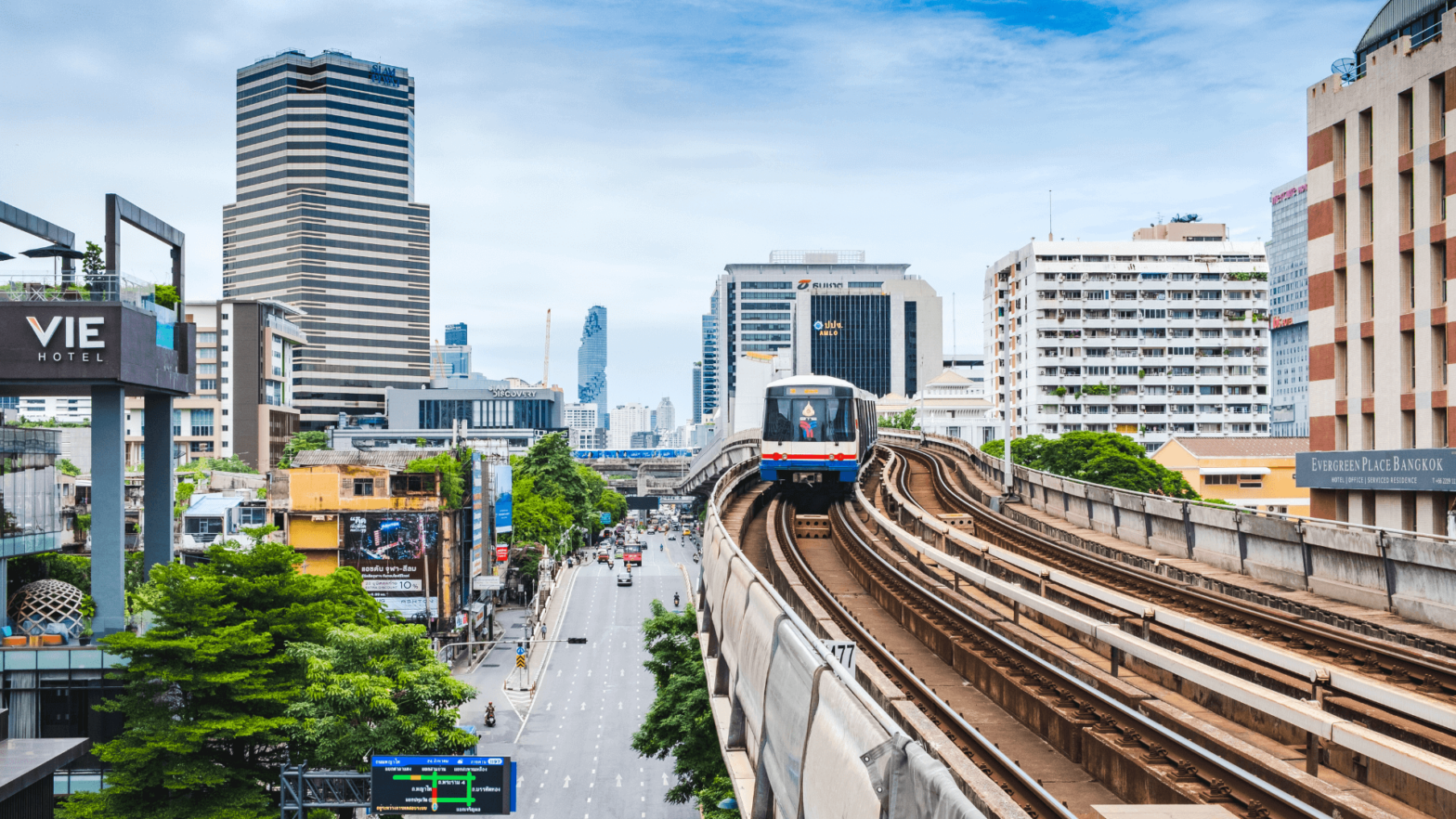Towards EU-wide Multimodal Ticketing and Payment Systems

This Policy Brief reflects upon the discussions at the 6th Florence Intermodal Forum that took place on 13th September 2019.
On the dedicated webpage, the event agenda and all speaker presentations are made available.
Download full pdf – European Transport Regulation Observer – Policy Brief 2019/19
The attainment of seamless multimodal door-to-door mobility has emerged as a clear priority on the EU policy agenda. Having declared 2018 as the ‘Year of Multimodality’, the European Commission has over the past year put together a number of legislative and policy initiatives relating to better infrastructure, connections, incentives and digital solutions, with a view to promote the shift towards a fully integrated, multimodal and sustainable transport sector.
Achieving this goal, however, will largely depend upon creating favourable conditions for transport users, which, among other things, include the creation of ‘multimodal ticketing and payment systems’. In practical terms, this means that the purchase of tickets in one go would enable passengers to travel using different transport modes provided by numerous operators. Different approaches to ticketing and payment systems have been observed to date across the different EU Member States, and, in some instances, even across different regions of the same country. It is becoming increasingly clear, however, that an overarching EU framework may be needed for the successful implementation of multimodal transport especially in cross-border contexts.
Access to fare data, in particular, is one important pre-condition to enabling multimodal EU-wide ticketing and payment systems. At present, however, there are no common EU rules on access to fare data (beyond the Delegated Regulation 1926/2017 on EU multimodal travel information services), which increases the complexity and poses a hurdle for the development of multimodal EU ticketing and payment systems. In addition, the absence of common rules and standards, means that data are collected and made available in different formats only based on common standards developed by the parties of the commercial agreement. The development of a common EU-wide definition for multimodal ticketing and payment systems will be an important, yet challenging, task ahead of EU policy makers in ensuring streamlined national approaches and safeguarding the possibility for Europeans across the continent to enjoy EU-wide door-to-door mobility.
In light of this, the 6th Florence Intermodal Forum gathered European- and national-regulators, public transport operators, industry representatives, and academics for a discussion on the challenges and enablers to delivering an EU-wide multimodal ticketing and payment system. Participants took stock of existing projects and EU-legislation and subsequently went on to examine possible EU actions and initiatives that could be undertaken in view of achieving the objective at hand. More specifically, forum participants addressed the following three questions:
- How can access to fare data be enabled?
- What lessons can be drawn from the air ticket distribution market?
- What are the possible EU actions and initiatives, both legislative and non-legislative, which could be undertaken in view of achieving an EU-wide multimodal ticketing and payment system?
Matthias Finger
Director of the Transport Area of the Florence School of Regulation (EUI), and Professor at the École Polytechnique Fédérale de Lausanne (EPFL)
Juan Montero
Part-time Professor at Transport Area of the Florence School of Regulation (EUI), and Professor of Administrative Law and Economic Regulation in the Universidad Nacional de Educación a Distancia (UNED) in Madrid
Europe has a long tradition of public transportation, not only in long-distance travel (airlines, but also railways and now high-speed railway services) but also in local mobility. Most European cities have well developed bus, tram and subway networks, and now more and more micro-shared-mobility networks of bikes, motorbikes, scooters and others more. Still, all these public transport networks work mostly independently from one another: passengers have to navigate through non-coordinated transport services, reducing the overall attractiveness of public transport vis-à-vis private cars. And public authorities have turned out to be quite helpless in this matter.
But, technology might now change this. Indeed, transport is now being digitalised these days in exactly the same way as all other services: smartphones and Internet-of-Things-sensors are being installed in the infrastructure/vehicles, ubiquitous access to the internet at very low prices becomes a reality and artificial intelligence in the form of self-learning algorithms is increasingly applied. Like everywhere else, digitalisation reduces coordination (transaction) costs and makes a more efficient coordination of the different transport modes a very real possibility.
Without data-sharing, ticketing and payment systems will not be integrated
For digitalisation to improve intermodal transport – i.e., for ticketing and payment to become multimodal –, data will have to flow across transport operators and across transport modes. Of course, each national, regional or local transport system can already significantly improve its efficiency thanks to digitalisation. But there are many more efficiency gains possible if one integrates across transport modes. Yet, this is only possible if the different actors share their data, as algorithms can only coordinate transport if they are fed with quality data generated by the different transport systems. Data sharing is thus a pre-requisite for integrated ticketing and payment systems, and more generally for digitalisation to deliver its results.
There are already many successful experiences where data sharing has enhanced the coordination of traditional network industries: Computerised Reservation Systems (CRS), for example, have helped airlines to pool their data into a single system, so that travel agents can navigate through the existing offers and prices. Amadeus and Sabre were probably the first such integrated transport platforms, created decades before Silicon Valley entered the scene. And regulation was thus adopted already back in the 1990s, both in the US and in the EU, to impose data sharing on airlines, as well as to force transparency and neutrality in the display of information by these platforms.
Nowadays, when data is considered to be the “new oil”, actors appear to be more reluctant to share their valuable asset (data). Other transport actors, without necessarily being opposed to data-sharing, are taking a more cautionary approach, before sharing their data about schedules, ridership, vehicle locations, incidences, and others more, as they think that such sharing might undermine their future competitive position. Newly emerging (mobility) platforms, they think, might just use their data to create new powerful network effects on top of their own existing transport offerings, thus commoditising their services and monopolising the relationship with passengers. Quite understandably, traditional transport players do not want to be “platformed”.
Time to act
Consequently, many voices are calling for the regulation of data sharing. This is not only the case of the newly emerging mobility platforms, which promise seamlessly integrated transport solutions if only they were given access to data. It is also the case of the various transport operators themselves, who would like to better coordinate their offerings with other related transport services. But it is thirdly the case of the public authorities – many of which at the local level – who want to have access to the various mobility data so as to have better visibility of what is happening in their territories and to improve their policies. They also want data to be shared across transport service providers so that multimodality can be enhanced, passengers can fully benefit from the available public (and private) offerings and ultimately infrastructure costs can be reduced.
For all three good reasons, data sharing in transport so as to allow for multimodal ticketing and payment systems will have to be regulated. It is almost 10 years ago – with the ITS Directive back in 2010 – that the European Commission has started to look into the regulation of data-sharing. But now, after the year of multi-modality (2018), it may be time to act, but how exactly? We think that three types of action will be necessary for integrated ticketing and payment systems to become a reality in Europe, namely standard setting, some compulsory data-sharing, and consumer protection.
Standardisation
Before anything else, there is a clear role for public authorities to facilitate data sharing by creating the necessary standards. The sharing of non-standardised data can be costly or simply impossible. It is thus necessary to define standards for the development of common Application Protocol Interfaces (APIs), i.e., standards for the software that allows the interaction of the different systems used by each actor.
Standards are also necessary so as to define the relevant data that has to be exchanged, and the quality of the data. And probably everybody agrees – the public authorities as well as the transport services providers – that clearly defined and publicly enforced will save time and money to everyone, not to mention the fact that will power the exchange of data. Also, standard setting is a fairly classic public intervention into the market and actually not a very intrusive one.
Some compulsory data sharing
There will be however less consensus as to the next step, namely regulating the sharing of some data among transport operators, between transport operators and newly emerging platform and between operators and public authorities. As said above, some data-sharing will have to declared compulsory if we ever want to make progress towards multimodal ticketing and payment systems.
Today, the strongest voices calling for data-sharing regulation come from aggregators and platforms that want to build their “data services” on top of the services provided by traditional transport operators (service providers). They claim that market power enjoyed by legacy carriers, sometimes with exclusive rights or large market shares inherited from historic monopolies, makes it impossible for them to roll out their (digital) mobility offerings. Local public authorities often join their calls, convinced as they are that the traditional transport operators simply want to perpetuate their monopoly positions.
In reality, these calls for data-sharing regulation often hide the fact that these new platforms would like to access or even substitute the traditional transport operators’ ticketing distribution systems. In other words, the digital platforms – by way of asking for data-sharing – are in reality asking for the legal right to become the distributors of the tickets of the physical transport service providers, in such a way that passengers can directly acquire their tickets from platforms and aggregators, thus bypassing the historical physical transport service providers. The most ambitious of these platforms want to become fully integrated “Mobility-as-a Service providers”, whereby passengers can use one single app to acquire a single ticket or a subscription for a flat fee, allowing them to use all kinds of public transport services, shared-mobility solutions and even shared-cars and car-rentals.
Many transport service providers oppose such requests for compulsory sharing of data and ticketing systems. They claim that distribution agreements should be the result of commercial agreements ensuring a balanced distribution of value and liabilities across the actors involved in the agreement. Compulsory data-sharing and distribution agreements, they claim, will simply strengthen the position of platforms and of the aggregators vis-à-vis the transport service providers. The experience of other industries (media, hotels, etc.) shows that, overtime, digital platforms tend to become the entities with market power in the relationship with the traditional players. In our view, data-sharing regulation should not accelerate the rise to power of digital platforms, a process that may well lead to a winner-takes-all dynamics.
Yet, at the same time, it is undeniable that digital platforms lead to substantial efficiency gains, because of the powerful network effects they entail. And both passengers and public authorities should be able to benefit from such efficiencies. Compulsory data-sharing (including ticketing) might indeed be necessary in order for such efficiencies to materialise. However, we would advocate a more balanced regulation of data-sharing: indeed, data-sharing should not be a one-way street, where transport services providers feed the platforms and lose the contact with their customers in the process. Rather, it should be reciprocal, whereby platforms have to give some of their data back to the transport services operators, notably data about passenger behavior which in turn will allow the transport operators to improve upon their services. In this way, their direct distribution systems could also benefit from the data generated by the indirect channels (the platforms).
In short, compulsory data-sharing will be more easily accepted by the traditional transport services providers if, in return, they get “repaid” with information about their customers, i.e., if data-sharing regulation will be a two-way, rather than a one-way street.
Liability
Another important dimension of a more-balanced relationship between the transport services providers on the one hand and the digital platforms on the other will be a fair regulation of liability.
Firstly, it is necessary to harmonise the different liability regimes across transport modes. In other terms, the rights granted to passengers across the different transport modes have to be harmonised. In this way, integrated service providers will be subject to a clear liability regime.
Secondly, the liability of the integrator has to be clarified. Many platforms are reluctant to take full liability for the sale of an integrated ticket. This is particularly the case when local transport is integrated with long-distance and thus more expensive services. Of course, it is risky for any provider of integrated ticketing to take on the liability of missing link in the mobility value chain.
There might be commercial solutions for this problem, as the contracting of insurance to cover the risk. This is already a reality for some integrators of flights provided by third parties outside interlining agreements. These kind of solutions could be exported to other transport modes.
In any case, the passenger rights legislation will have to be adapted to take into consideration multimodality and the new role of platforms and integrators. At the least, the Commission would have to come up with a more harmonised passenger-rights regulatory framework, than is currently the case, so as to create a fairer level-playing field.
Teodora Serafimova, Florence School of Regulation, Transport Area
Back in its 2011 White Paper on Transport, the European Commission conveys its vision of achieving a fully functional and EU-wide multimodal TEN-T core network by 2030, together with a corresponding set of information services. To this end, an intermediary objective has been set to establish a framework for European multimodal transport information, management and payment systems by the year 2020. In practical terms, this entails making available multimodal scheduling, information, online reservation and payment systems and smart ticketing via one website: all of which are pre-requisites for seamless door-to-door multimodal and user-friendly travel experience.
With continuous population growth and urbanisation trends it goes without saying that the transport sector will continue to play a key economic and commercial role. Reconciling this growth with the Commission’s mid-century decarbonisation objectives calls for a rethinking of mobility needs and the development of smarter mobility concepts. Mobility-as-a-Service (Maas) indisputably has a key role to play in today’s increasingly congested urban environments. Studies have, in fact, shown that one single car-sharing vehicle can enable the removal of 10 to 15 private cars from the road.
The ability of transport users to effectively compare travel options is key to enabling them to make informed choices about their journey – be it the choice of the cheapest, shortest, greenest or most comfortable travel option. In other words, integrated ticketing and payment systems could enable passengers to avoid congestion thereby also mitigating the negative social and environmental effects associated with it. This in turn is a pre-condition to making Europe’s transport system more efficient, and goes hand in hand with the enactment of cost-reflective pricing and the Commission’s recent work on the internalisation of the external costs of transport.
While no common EU legislative framework exists today governing integrated ticketing, a long list of existing EU directives and regulations touch upon different aspects necessary to achieving it. Back in 2010 the European Commission adopted its Intelligent Transport Systems (ITS) Directive which today is the primary regulatory instrument for the implementation of the ITS Action Plan. A key pillar of the ITS Action Plan is the optimal use of travel and traffic data to foster multimodal travel, which is a core element of the Commission’s strategy for the future of transport. One specific action, 1.5, relates to the promotion of multi-modal journey planners.
In its 2014 roadmap, the Commission identified the key guiding pillars towards the achievement of integrated multimodal ticketing. These include improving the availability of good quality multimodal travel and traffic data; enabling fair and equal access to multimodal travel and traffic data; ensuring interoperable, harmonised data formats and data exchange protocols; as well as facilitating efficient cooperation between stakeholders among others.
Subsequently, in May 2017, the Commission adopted the Delegated Regulation on the provision of EU-wide multimodal travel information services. This delegated act aims at ensuring the accessibility, exchange and re-use of accurate travel and traffic data with a view to fostering the linking up of travel information services. More concretely, it aims at facilitating the access to “static” travel data (e.g. scheduling information from all transport operators – sorting out the responsibility for providing wrong information) as well as the provision of dynamic (real time) information (which has been left to Member States’ discretion to impose). But, as became evident during the discussions, the list of relevant EU legislation that needs to be considered when addressing the topic of multimodal ticketing goes beyond these, and includes Public Service Obligations, the Rail Directive, the Open Data Directive; and the Regulation on a Code of Conduct for Computerised Reservation Systems, among others.
While cross-border integrated ticketing is at the heart of the EU’s aspirations, no concrete project exists to date, namely because of the lack of a common legal framework. The 6th Florence Intermodal Forum provided a timely opportunity for the presentation of the Commission’s freshly published study on the Remaining Challenges for EU-wide Integrated Ticketing and Payment Systems, which was followed by an open debate among relevant stakeholders on the possible EU actions in this regard. The study provides an analysis of the challenges to EU-wide integrated ticketing and payment systems, and investigates the possible legal and voluntary actions that could be considered at the EU-level in pursuance of this goal. More concretely, the study gives a comprehensive overview of the existing legal framework both at EU and national level, as well as the non-legislative initiatives and the projects in place. Subsequently, the core challenges for the development of EU-wide integrated ticketing and payment systems are identified and a set of recommendations to overcome them is developed. The study’s scope covers urban-, local- as well as long-distance modes, and considers both public and private transport operators.
The achievement of a single ticket is extremely challenging, especially in a multimodality context. The question was therefore posed, from the outset, whether it is a single ticket that we should be targeting to achieve seamless multimodal mobility or rather a single device to provide multiple tickets. Other selling modalities, such as combined tickets for instance, were highlighted as possible solutions to problems linked to integrated ticketing, in particular with regards to liability of various transport operators.
While the scope of the Commission’s study was primarily focused on the commercial and legal challenges to integrated ticketing and payment systems, the existence of technical challenges was clearly recognised. In particular, the lack of interoperability between the Application Protocol Interfaces (APIs) of the various stakeholders and the use of different standards increase costs and discourage investment.
When it comes the commercial challenges, the study shows that while a critical mass of users is needed for successful multimodal ticketing, the bigger the geographical area the more difficult it is to achieve cooperation. The study results demonstrate that integrated ticketing today is operated over long-distance (e.g. rail-air-shipping integrated transport) or at the local level (e.g. integrated ticketing in metropolitan areas), yet the evaluation suggests that there is a lack of effective cooperation between long-distance and local/urban integrated ticketing. This needs to be improved, and, as a first step, the establishment of common definitions of what constitutes long- and short-distance was stressed.
Integrated ticketing, moreover, is challenged by complex decision-making processes, linked to the sharing of ticket sale revenues among others. Public Service Obligations (PSOs), in particular, were highlighted as an obstacle for revenue sharing in integrated ticketing. The integration of public (subsidised) mobility services and commercially viable services can be difficult, given that the subsidisation of operations can act to determine how transport operators can sell their tickets. PSOs operators may be exempted from providing access to fare data, under clauses related to the subsidised fares. Revenue sharing between multiple parties thus calls for new back office structures and new models for fare and revenue collections.
As regards the legal challenges, the lack of common rules regarding fare dynamic data access-and-use for both public and private operators has increased complexity and reduced opportunities for the development of integrated ticketing and payment systems. National initiatives seeking to promote data access for integrated mobility, moving beyond the Delegated Regulation of 2017, however, may further increase fragmentation, which calls for an in-depth analysis and corresponding measures enacted at the EU-level. Another issue raised by stakeholders consulted in the preparation of the study have been antitrust concerns for exchange of information. What is more, national competent authorities have indicated that the exchange of sensitive information among competitors and/or companies at various levels of the supply chain, and some incumbents’ refusal to supply have raised competition law concerns.
Despite the legal, commercial and technical barriers, there is clear interest in integrated ticketing, as manifested through the various initiatives adopted at the local and national levels throughout Europe. In fact, a number of projects and initiatives are already underway and addressing different aspects relating to integrated ticketing and payment. The majority of these, however, have thus far focused on a specific set of users or have been limited to a certain geographical area.
How can access to fare data be enabled?
In order to create an open MaaS ecosystem and to reap the full benefits of digitalisation, the provision of access to high-quality data – both static and dynamic, including on routes, schedules, availability of fleet, accessibility information, road works, traffic situation and disruptions, will have to be ensured. At present, however, no common EU rules or standards exist for access to fare data (beyond the 2017 Delegated Regulation). Consequently, data is being collected and made available in different formats.
Access to fare data can be facilitated via regulation, via voluntary codes of conduct, or via reciprocity models. A majority of forum participants were in agreement that regulatory measures will be needed to define minimum requirements for the quality of data provision and digital payment solutions. This in turn would need to be accompanied by adequate support from public authorities, who will have a key role to play, especially in ensuring standardisation and overseeing the subsequent enforcement of the common API standards.
The Finnish case study, in particular, was highlighted as a best practice which the future EU framework could build on. The Finnish Act on Transport Services, which entered into force in 2018, sets out three obligations to open up APIs. It mandates the opening up of access to essential data concerning mobility services; the granting of access to a sales interface for single tickets or a reservation interface for transport; as well as the access to a sales interface when acting on someone else’s behalf.
In order to address the issue of access to fare data, the Finnish Act on Transport mandates that public service providers under a PSO comply with interoperability requirements. This ensures the existence of integrated ticketing and payment services. Following the Finnish approach, it could be argued that PSOs may represent a potential solution rather than a barrier. Incentives for the contracting authorities in including fare data access for integrated ticketing may be included in the contractual conditions with the transport operators, especially where exclusive rights are granted. In addition, the relevant provisions of Regulation (EC) 1370/2007 on revenue allocation between the contracting authority and the transport operator can provide the legal basis for appropriate interventions.
While sharing data is key, participants stressed that reciprocity and trust need to be ensured. Outgoing Competition Commissioner (and to-be Digital Commissioner) Margrethe Vestager’s stated intention to implement a regulation against abusive self-preferencing was highlighted as key in this respect. Failure to share data may result in lost opportunities, in the form of loss of competitiveness of the EU public transport system.
What lessons can be drawn from the air ticket distribution market?
Discussions subsequently zoomed into the air ticket distribution market. The Code of Conduct for Computerised Reservation Systems (CRS), established by means of an EU Regulation already back in the early 1990, has been instrumental in imposing data sharing on airlines, and mandating transparency and neutrality in the display of information by CRSs.
The dramatic structural transformations which have come upon the aviation market in the past 30 years, however, have rendered the Code of Conduct obsolete. The now 40-year old distribution standards, it was argued, are no longer matching the demands of the industry given the lack of flexibility, high costs and limited adaptability associated with them. In light of this, it is becoming clear that airlines need more flexible distribution processes in order to mitigate their high distribution costs.
The protection of consumer choice and fair competition have been two key objectives in the airline ticket distribution market. The limited transparency has, however, acted as a key barrier to informed consumer choice and has undermined fair competition in the aviation industry. Drawing on this, a number of recommendations emerged from the aviation market in the form of pre-conditions that need to be met for multimodal ticketing and payment systems to take off. These include the definition of clear rules for transport providers to make content and data available, with a view to ensuring information is transparent and easily accessible to consumers. Transparency was underlined as central for enabling “comparison shopping” and meeting consumer demands. An obligation for the provision of price breakdowns was quoted as helpful, yet has not been mandated in the CRS Code of Conduct.
Another pre-condition will be the facilitation of market access and protection of fair competition by discouraging discriminatory practices. Moreover, collaboration among public and private market players will need to be encouraged. All of these will need to be accompanied by adequate enforcement measures. Lastly, while building on the experience of the aviation sector is important, its inherent differences with the public transport market were stressed – which in turn needs to be taken into account in any future EU regulation.
What are the possible EU actions and initiatives, both legislative and non-legislative, which could be undertaken in view of achieving an EU-wide multimodal ticketing and payment system?
The numerous different pieces of EU legislation which were brought up and discussed in the course of the forum, given their relevance to integrated ticketing and payment systems, point to fragmentation in the regulation of multimodality, which in turn has contributed to a sense of ‘over-regulation’ as quoted by some participants. While the appropriate approach forward is yet to be determined, a combination of legislative and non-legislative measures may need to be considered.
A clear take away that emerged from the discussion was that the successful implementation of integrated ticketing will require the granting of access to data on travel, traffic and fares – both static and dynamic –throughout all phases of the travel value chain. This in turn, it was suggested, may need to be regulated. A new legislative proposal on integrated ticketing could be instrumental in providing a definition for ‘essential data’, as well as in ensuring access to data on fair and non-discriminatory conditions for the ultimate benefit of European travellers. Importantly, such a legislative proposal could also help to clarify the applicability of competition rules for exchange of information, revenue sharing and abuse of dominant position. Drawing on the Finnish case, the introduction of ‘right to buy on behalf of users’ could be considered. Lastly, a definition and obligation of ‘third party service provider’ could be tackled via this legislative proposal.
In addition, guidelines should be drafted to clarify the role of PSOs in data sharing, integrated ticketing, payment systems, revenue sharing, and interoperable service interface accessibility. More specifically, conditions should be defined to provide integrated ticketing, including interoperability and data access, as part of the commercial offer. This solution, too, has been adopted by the Finnish Act on Transport, which mandates the transport authority to evaluate compliance of the PSOs provider with the requirements on data access and interoperability when awarding a PSO contract. A transparent contract notice requiring that the transport provider comply with the terms of interoperability, including a possible clear separation between the compensation and the fare revenues, could allow for the development of integrated ticketing from both third parties or transport operators and public authorities.
In terms of concrete legislative steps, the Commission has completed the recast of its ITS Directive and is in the process of reviewing its Urban Mobility Strategy as well as the TEN-T Regulation. Participants agreed on the need for common MaaS guidelines and for a link to be made to the Sustainable Urban Mobility Plans. Furthermore, it was suggested that a revision of the Delegated Regulation should include integrated ticketing and payment systems. Strengthening access to dynamic travel data for instance could be achieved by means of mandating access to dynamic fare data, and the introduction of minimum standards in order to grant interoperability of the interfaces of the services providers, included payment systems. A revised Regulation on the CRS Code of Conduct, on the other hand, could be extended to other modes.
Given the limited data available, however, some stakeholders were in favour of a wait-and-see approach, mainly for the sake of monitoring the implementation of Directive (EU) 2016/237 on the fourth railway package on an EU-wide through-ticketing system as well as of the 2017 Delegated Regulation. In the case of the latter, it would be particularly interesting to monitor developments in Member States which opt for mandating access to dynamic data, and more generally market initiatives which have good potential to be developed on a larger scale.
As a general comment, it was argued that future actions and initiatives, be they legislative- or non-legislative, need to be tailored to the diverse set of stakeholders and their needs (e.g. road transport operators being primarily made up of SMEs, and thus very different from their rail counterparts). These nuances need to be reflected in the future regulation of integrated ticketing and payment systems, as they will entail serious implications in terms of prices, jobs and environment. Effective cooperation between public and private transport operators at the local, regional and national level will have to be encouraged, and strong partnerships based on governance arrangements will have to be forged. The involvement of public authorities will be crucial, as well as the safeguarding of investments to support smaller service providers.
Finally, the creation of a so-called MaaS ‘aggregator’ was proposed. This new regulatory-type body would need to be transparent, neutral, discrimination free, and fair and could take on roles central to overcoming many of the above-mentioned barriers to multimodal ticketing.
A comment by Juan-Jesus Garcia, Amadeus
One of the key priorities identified by the European Commission in its White Paper, Roadmap to a Single Transport area, towards a competitive and resource efficient transport system, is to establish the framework for a European multimodal transport information, management and payment system by the year 2020.
The European Parliament has also endorsed and supported that ambition in its report on “Europe on the move: an agenda for the future of mobility in the EU”: ‘’47, Stresses that mobility is increasingly regarded as a service and therefore expanded seamless multimodal door-to-door transport should be made possible on a cross-border basis, and accordingly calls on Member States to make multimodal travel information and booking services available, with real-time information’’.
The Commission is currently working on assessing whether specific policy and/or regulatory initiatives would be required to foster the development of a seamless multimodal digital transport system in Europe. This would significantly contribute to the deployment of a single, sustainable and innovative digital transport market, benefiting consumers and companies operating in that space.
In this context, the Florence School of Regulation organised its 6th Intermodal Forum inviting the Commission and industry stakeholders to debate about this relevant topic. Amadeus IT was invited to participate in a panel discussion along with other industry representatives: Airlines and Online Travel Agents. The topic of the debate was very relevant: Lessons learned from the Airline Ticket Distribution (ATD) market applicable to the Multimodal case. The ATD market is currently regulated by the CRS (Computerised Reservation System) Code of Conduct. The Code of Conduct was originally set by the European Commission to protect consumer choice and fair competition in the distribution of airline (and Rail) tickets through neutral independent distribution channels: travel agencies using CRSs. The Code is currently under review by the Commission in order to adapt it to the new market and competition dynamics in airline distribution.
The airline ticket market definitely provides some interesting examples that the Commission could take into account when assessing the best policies and/or regulatory measures to enable multimodality. Some of the ideas and recommendations that resulted from this debate were:
A Code of Conduct sustained by clear consumer protection and fair competition rules would foster a true seamless Multimodal Transport digital marketplace
In a growing door-to-door multimodal marketplace, consumers are expected to access to multimodal transport information transparently and transport/services companies are expected to compete fairly on the merits of their offers. Therefore, rules to protect transparency and neutrality, as established in the CRS Code of Conduct, will be critical to support consumer choice and fair competition in a multimodal transport system and to provide legal certainty incentivising the use by travellers and the investment in adoption by travel companies.
The CRS Code of Conduct established clear rules to protect consumer choice and fair competition that could be made applicable to other transport modes in a multimodal environment: Recital 9 : ‘’In order to protect consumers’ interests it is necessary to present an unbiased initial display to users of a CRS and to ensure that information on all participating carriers is equally accessible in order not to favour one participating carrier over another’’. Recital (10) The use of an unbiased display increases the transparency of transport products and services offered by participating carriers and enhances consumer confidence’’.
Ensuring non-discriminatory access to transport data should be the cornerstone of a seamless multimodal transport system
Access to essential data (prices, schedules, availabilities, ancillaries) from transport operators is a must to foster market development. This data should be transparent and easily accessible for service providers and ultimately by consumers. Some large operators have an incentive to limit/discriminate/withhold access to essential data in order to shift traffic to their own platforms thus limiting transparent and neutral comparison by consumers. Therefore, it is important that policy makers should establish clear obligations for transport operators to make that data available in a non-discriminatory manner to services. This is ultimately about ensuring and protecting transparency. This is a position that is strongly defended by different trade industry associations in their position papers on the CRS Code of Conduct such as ETTSA (European Travel Technology Services Association), ECTAA (European Travel Agency Association), ERA (European Regional Aviation) and EPF (European Passenger Federation).
Ensuring a level playing field (equal rules applicable to all players) and fair competition (neutrality secures competition on the merits) will be essential to stimulate innovation and fair access to a multimodal market by EU start-ups.
Currently, big dominant platforms are placed in a privileged competitive position to enter and disrupt this marketplace and gain a first mover advantage. It is critical that the Commission takes into accounts the existing and possible evolution of market dynamics when defining the best policies and regulation to correct possible market failures.
Don’t miss any update on this topic
Sign up for free and access the latest publications and insights








